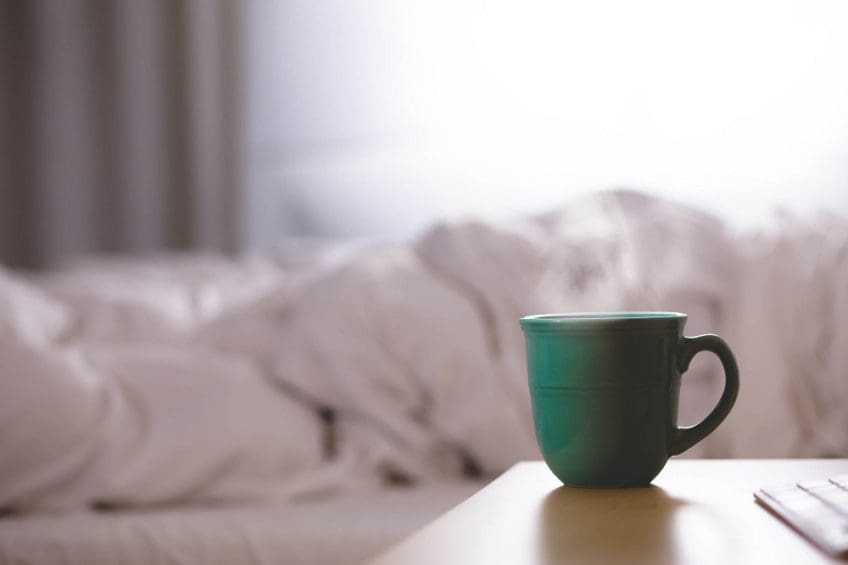Shift Work and Your Sleep Routine
Sleep is one of the single most important things to focus on if you work shift work, and yet is one of the hardest to do consistently well! The risk of developing sleep disorders in shift work is incredibly high, but there is a lot we can do to help manage this.
When we are sleeping during the day, awake at night and eating during the night, we essentially throw off the body’s internal clocks, which significantly increases the risk of chronic disease. The body doesn’t know when to produce melatonin effectively, so falling asleep naturally becomes more and more of a problem.
The other factor common to shift work is lack of sleep. Family obligations, difficulty sleeping during the day, or trouble falling asleep before an early shift lead to sleep restriction, which is defined as less than 6 hours of consecutive, uninterrupted sleep. This factor alone contributes to hormone imbalances, impaired immunity and can decrease your metabolism by up to 8%!
Here are some tips to help manage and prioritize your sleep routine for optimal health benefits.
- Have caffeine at the right time. Caffeine can stay in our system for up to 8 hours, so try not to use caffeine as a pick-me-up towards the end of your shift. Have it upon waking, or at the start of your shift instead.
- Wear dark sunglasses while driving. If it’s already light on your drive home after a night shift, wear very dark sunglasses to block out as much of light as possible. Wear them all the way inside and into your sleeping environment if you want!
- Exercise yes, but early in the day/shift. Working out 2-3 hours before going to bed can offset the production of melatonin, making it harder to fall asleep. Exercise upon waking, at the start of a shift, or half-way through. A regular exercise routine is very beneficial to ensuring good quality sleep!
- Eat a small breakfast or snack before going to bed. This does a couple of things – 1) It keeps you on track with our circadian rhythm (having breakfast at typical breakfast time), 2) helps prevent your sleep from being interrupted by hunger.
- Hydrate well LONG BEFORE bedtime. This may seem obvious but drinking too much right before bed will definitely interrupt your sleep and result in having to use the washroom within a few hours. Focus on hydrating well throughout the day or night.
- Create a strong sleep routine. And do it every night/day before bed. Seriously! We have to tell your body when it’s time to go to sleep when we don’t have the major factor of darkness to produce melatonin. This can include stretching, brushing your hair, reading for 10 minutes, meditation, warm shower (not hot, not icy cold) etc.
- Screen time. We all know it and we’re all bad at it – no screens with blue light at least an hour before bed. Blue light aside, scrolling is addicting and may keep you awake for longer than you intended! If you don’t need your phone while sleeping, plug it in outside of your room so it’s not a temptation.
- Create a very good sleeping environment. Quiet and cool is the key. Try blackout blinds, a sleeping mask and ear plugs if necessary.
- Aim for minimum 6 hours of interrupted sleep. No alarms or interruptions before then! If possible, make this a family goal, helping everyone to know about it and understand why.
- Know your chronotype and natural melatonin production. Night owl or early bird? And when is the best bed time for you based on your natural melatonin production. If you aren’t sure which you are, the Automated Morning-Eveningness Questionnaire (MEQ) can help you determine this!
- Experiment with light therapy. Using an alarm clock that simulates a sunrise or sunset can signal to your body to produce melatonin naturally and wake up naturally in a more rested state.
- Have consistent bedtime-wake up schedule on days off. Yes, your days off matter! Know when you best fall asleep based on your melatonin production and be in bed by that time!
Here is a sample schedule of when to sleep based on a typical dayshift or night shift:
| DAYSHIFT (0600h – 1800h) | NIGHTSHIFT (1800h – 0600h) | ||
| TIME | IDEAL SCHEDULE | TIME | IDEAL SCHEDULE |
| 0500-0530 | Wake up | 0630 | Light breakfast |
| 0600-1800 | Work + meals | 0700 | Start bedtime routine(No screens) |
| 2030 | Start bedtime routine (No screens) | 0730 | Bed + fall asleep |
| 2100-2200 | Bed + fall asleep | 0800-1600 | Sleeping (total 7-8 hours) |
| 2200-0500 | Sleeping (total 7 hours) | 1600-0600 | Work + meals |
Hopefully by now you can see how critical your sleep is to your health, especially if you work shift work! This area takes A LOT of work, but the rewards are exponential towards your health and longevity in your career. Every schedule is slightly different, and every person might have a different natural bedtime. We are here to support your health goals and can help you navigate the challenges of your schedule, so don’t hesitate to reach out!
– Registered Dietitian (Nutritionist)

